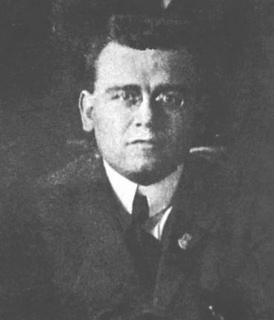A Quote by Friedrich Engels
The anarchists put the thing upside down. They declare that the proletarian revolution must begin by doing away with the political organization of the state. But to destroy it at such a moment would be to destroy the only organism by means of which the victorious proletariat can assert its newly-conquered power, hold down its capitalist adversaries, and carry out that economic revolution of society without which the whole victory must end in a new defeat and a mass slaughter of the workers similar to those after the Paris commune.
Quote Topics
Adversaries
After
Assert
Away
Begin
Capitalist
Carry
Commune
Conquered
Declare
Defeat
Destroy
Doing
Down
Economic
End
Hold
Mass
Means
Moment
Must
New
Only
Organism
Organization
Out
Paris
Political
Power
Proletariat
Put
Revolution
Similar
Slaughter
Society
State
Thing
Those
Upside
Upside Down
Victorious
Victory
Which
Whole
Without
Workers
Would
Would Be
Related Quotes
We must institute a coup d'etat, a third revolution, which must beat down anarchy. Dissolve the Paris Commune and destroy its sections! Dissolve the clubs, which preach disorder and equality! Close the Jacobin Club and seal up its papers! ... The triumvirate of Robespierre, Danton and Marat, all the 'levellers', all the anarchists. Then a new Convention will be elected.
...it was always our view that in order to attain this [proletarian revolution] and the other far more important aims of the future social revolution, the working class must first take possession of the organised political power of the state and by its aid crush the resistance of the capitalist class and organise society anew.
After the countrywide victory of the Chinese revolution and the solution of the land problem, two basic contradictions will still exist in China. The first is internal, that is, the contradiction between the working class and the bourgeoisie. The second is external, which is the contradiction between China and the imperialist countries. Consequently, after the victory of the people's democratic revolution, the state power of the people's republic under the leadership of the working class must not be weakened but must be strengthened.
The enormous social change involved in a sexual revolution is basically a matter of altered consciousness, the exposure and elimination of social and psychological realities underlying political and cultural structures. We are speaking, then, of a cultural revolution, which, while it must necessarily involve the political and economic reorganization traditionally implied by the term revolution, must go far beyond this as well.
The degeneration of the revolution in Russia does not pass from the revolution for communism to the revolution for a developed kind of capitalism, but to a pure capitalist revolution. It runs in parallel with world-wide capitalist domination which, by successive steps, eliminates old feudal and Asiatic forms in various zones. While the historical situation in the seventeenth, eighteenth and nineteenth centuries caused the capitalist revolution to take liberal forms, in the twentieth century it must have totalitarian and bureaucratic ones.
Except for the small revolutionary groups which exist in all countries, the whole world was determined upon preventing revolution in Spain. In particular the Communist Party, with Soviet Russia behind it, had thrown its whole weight against the revolution. It was the Communist thesis that revolution at this stage would be fatal and that what was to be aimed at in Spain was not workers' control, but bourgeois democracy. It hardly needs pointing out why 'liberal' capitalist opinion took the same line.
The kingdom of God must be a continuing revolution against the norms of the society that fall below the standards that are set for us in the gospel of Jesus Christ. In the field of public life, it must be a continuing revolution against proposals that contradict the fundamental principles as laid down in the Constitution of the United States, which was written by men whom God raised up for this very purpose. If we remember that, we will be in the forefront of every battle against the things that are tearing down our society.
If the Revolution has the right to destroy bridges and art monuments whenever necessary, it will stop still less from laying its hand on any tendency in art which, no matter how great its achievement in form, threatens to disintegrate the revolutionary environment or to arouse the internal forces of the Revolution, that is, the proletariat, the peasantry and the intelligentsia, to a hostile opposition to one another. Our standard is, clearly, political, imperative and intolerant.
America, like Britain before her, is now the great defender of the Status Quo. She has committed herself against revolution and radical change in the underdeveloped world because independent governments would destroy the world economic and political system, which assures the United States its disproportionate share of economic and political power ... America's preeminent wealth depends upon keeping things in the underdeveloped world much as they are, allowing change and modernization to proceed only in a controlled, orderly, and nonthreatening way.
In order to create it is necessary to destroy; and the agent of destruction in society is the poet. I believe that the poet is necessarily an anarchist, and that he must oppose all organized conceptions of the State, not only those which we inherit from the past, but equally those which are imposed on people in the name of the future.
It was the Faith which gradually and indirectly transformed the slave into the serf, and the serf into the free peasant... You will not be able to set up in a pagan or an heretical or a wholly indifferent society the institutions characteristic of economic freedom; you will not be able to curb competition which alone would be sufficient to destroy such freedom, nor pursue permanently and consecutively any one part of the program. The thing must be done as a whole, and it can be done as a whole only by the ambient influence of Catholicism.








































